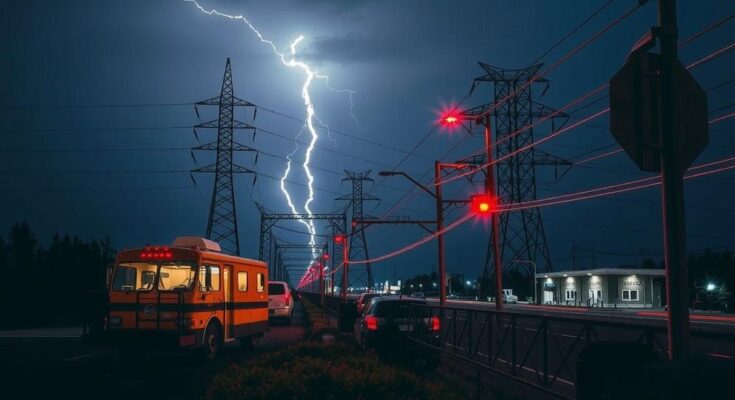The bomb cyclone that recently impacted Western Washington exposed critical weaknesses in the region’s electrical grid, resulting in widespread power outages for nearly half a million residents. Experts advocate for substantial grid upgrades to accommodate increasing electricity demand and incorporate renewable energy, highlighting the need for enhanced infrastructure and timely communication during recovery efforts.
The recent bomb cyclone that struck Western Washington has shed light on the vulnerabilities within the Pacific Northwest’s electrical grid, which left approximately half a million residents without power. The intense winds accompanying the storm uprooted trees, causing significant damage to power lines and leading to extensive repair efforts. Despite the storm’s severity not being directly attributed to climate change, experts indicate that the frequency of such weather events is likely to increase due to changing climatic conditions, putting further strain on the energy infrastructure.
The aftermath of the storm has highlighted the urgency for a comprehensive upgrade of the power grid to accommodate new renewable energy sources while ensuring reliable service. Nancy Hirsh, executive director of the Northwest Energy Coalition, emphasized the need for significant improvements, stating, “We have a lot of work to do.” Washington’s demand for electricity continues to rise, and existing resources such as hydropower are increasingly challenged by climate impacts.
Western Washington experienced a bomb cyclone containing hurricane-strength winds that devastated the region’s electrical infrastructure. Utilities faced immense challenges in restoring power to affected areas, revealing systemic weaknesses in grid management and emergency response. The storm has underscored the critical need for upgrades and investments in renewable energy resources, particularly as the state moves towards a carbon-free grid by 2045. Furthermore, it highlights the pressing issues of manpower shortages among utility providers, complicating recovery efforts initiated during such extreme weather events.
In conclusion, the bomb cyclone exposed significant deficiencies in Western Washington’s electrical grid, provoking a call for urgent reforms and enhancements. As climate-related disturbances become more frequent, the necessity for a resilient and robust energy infrastructure has never been clearer. The transformation towards renewable energy and improved communication between utilities and emergency services will be paramount in mitigating future outages and assuring greater grid reliability. The path forward requires substantial investments and innovative solutions to adapt to the evolving energy needs of the region.
Original Source: www.seattletimes.com




